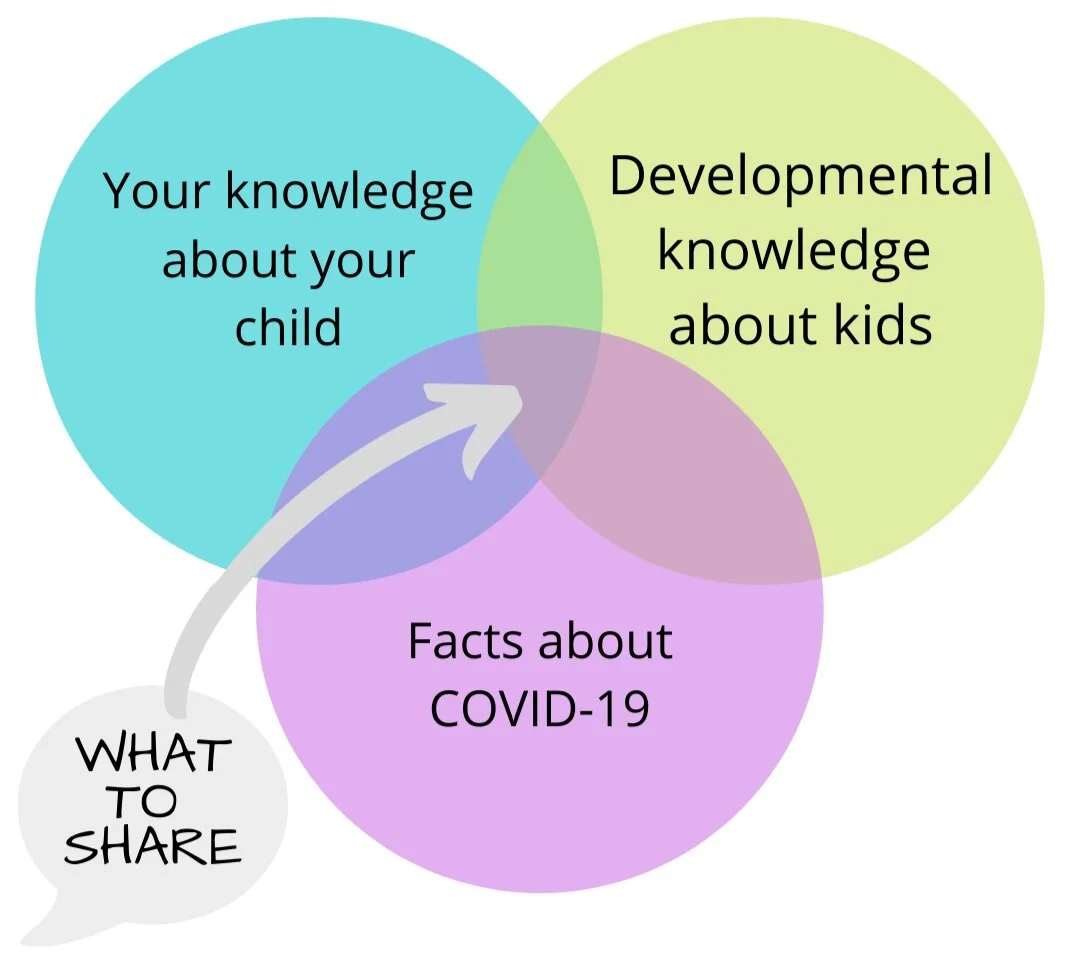The reality of the coronavirus is impossible to avoid. It is hard to go a few minutes without hearing the word or turn on the technology without seeing updates. While we, adults, might be overwhelmed by all of the talk about COVID19, children are equally, if not more, overwhelmed by the lack of talk about the virus. Just like with any major, alarming event, parents may feel daunted by the task of shedding light of this issue to their children. When left in the dark, kid’s fantasies are required to fill void of unspoken chaos around them, and the alarming thing is, their fantasies are often more terrifying than reality itself. That’s right, their imagination of COVID19 is likely scarier than the facts. In fact, I was speaking with a child and asked him what it would be like at home if a family member caught the virus. “Like a real life horror movie,” he said.
It is our responsibility as adults and parents to explain COVID19 thoroughly to children. Often, our worries of sharing too much cause us to share far too little, leaving many blanks to be filled in by young minds with boundless creativity. So, what is this fine line between over and under-sharing that we call “developmentally appropriate?” Consider this diagram below:
Let’s briefly look at each component to help you understand how to approach you children about the Coronavirus.
Do not underestimate your expertise on your children. You read that right- you are the ultimate expert of your children, and no one knows them better than you. You know their temperaments, how they handle scary parts of movies, and how long they carry their anxieties. Let this knowledge be your compass for how to share the facts of COVID-19.
So what do the experts of child development say about kids? That they can handle the facts when given a safe environment to process their feelings. Children will have big questions about the virus and even bigger feelings related to its real-life implications. It is important to provide a safe space for their feelings to be heard, reflected, and processed. Instead of swooping in and trying to “fix” their feelings and make them feel better, validate their feelings and help them to know they are not alone in feeling them. Take a minute to dwell in their feelings so they can elaborate their fears and explore their worries. Instead of saying “don’t worry” try and say “I understand just how scared you are. Everything is different right now and that is overwhelming, indeed.” Once they feel heard, they may be able to listen to some of the not-so-scary facts.
What facts should children be aware of?
Healthy bodies experience the virus similarly to the flu or a tough cold.
If we catch it, we will likely recover within two weeks and will feel better again.
People do not know they have the virus for a few days or even up to two weeks, which is why it is spreading faster than other colds and viruses.
We are staying inside because we don’t want to spread the virus, not because we are scared of getting the virus.
Even though kids and healthy bodies recover easily, people who are older than 80 or are battling an illness have a harder time fighting the virus.
It takes a community to fight the spread of COVID-19 and staying home and inside helps make sure everyone stays safe and gets better.
Telling children the above information will give them the facts to fill in some of the gaps that may have been festering in their minds these past few days. Help them to know staying at home is temporary. Validate that it is hard. Allow them to feel bored. Empathize when they feel scared. Encourage them through their challenges. Motivate them when it is hard. Praise their selfless efforts. Allow them to feel and struggle just like you.
If you find that your child is still showing signs of being overwhelmed after sharing the facts and empathizing with their feelings, reach out today to chat with one of our child therapists about other possibilities that may help them through this time.


